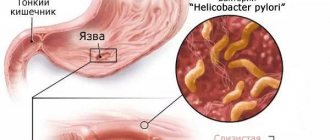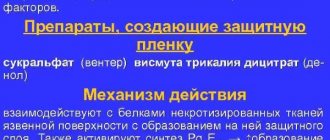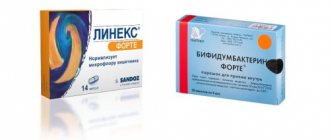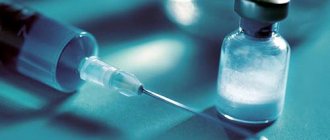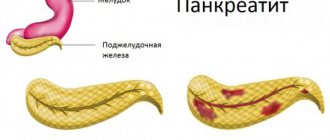"Magic" pills
There is a group of drugs collectively called non-steroidal anti-inflammatory drugs (NSAIDs), which we all have taken at least once in our lives, and many regularly. These are drugs that have analgesic, anti-inflammatory and/or antipyretic effects. Examples include Aspirin, Nurofen, Nice, Ketanov, Ketoprofen and others. Considering the “magical effects” of their action - relieving inflammation, pain and fever - they are prescribed by almost everyone, everyone, always. Prescribed by traumatologists, rheumatologists, therapists, ENT specialists, dentists. Plus, they can be purchased completely freely at any pharmacy. But, along with the “magical properties”, these drugs have a number of side effects that can be divided into 2 groups: cardio risks and gastro risks. Actually, gastrorisks will be discussed in this article.
Drugs to protect the stomach when taking medications
Nonsteroidal anti-inflammatory drugs (NSAIDs) are one of the most popular classes of medications around. Are you perplexed because you've never heard of NSAIDs? Look in your home medicine cabinet. Surely, you will have aspirin, ibuprofen, nimesil or diclofenac. These are all non-steroidal anti-inflammatory drugs.
They help us quickly get rid of pain, but at the same time they hit the gastrointestinal tract hard.
There is even a special term NSAID gastropathy - this is a lesion of the upper digestive tract, which develops as a result of long-term (from 4 weeks) use of non-steroidal anti-inflammatory drugs.
Why do aspirin and other NSAIDs negatively affect the stomach?
The main side effect of taking non-steroidal anti-inflammatory drugs is blocking the enzyme cyclooxygenase (COX) and increasing the production of hydrochloric acid in the stomach.
Aspirin and other NSAIDs can upset the balance between the protective function of the stomach and the destructive effects of gastric juice in favor of the latter, and therefore provoke the development of gastritis and peptic ulcers of the stomach and duodenum.
Due to severe side effects on the gastrointestinal tract, doctors try not to prescribe NSAIDs for a course longer than one month. But for some diseases, long-term treatment cannot be avoided.
Then you need to look for ways to neutralize the negative effects of non-steroidal anti-inflammatory drugs.
Gastroenteroprotectors are used as such a shield for the mucous membrane of the digestive tract.
NSAID gastropathy
In the scientific literature, this problem is called “NSAID gastropathy.” The term was first proposed in 1986 to distinguish specific damage to the gastric mucosa that occurs with long-term use of NSAIDs from classic peptic ulcer disease.
The difference between NSAID gastropathy and peptic ulcer disease can also be traced by the affected area. Most often, ulcers can be seen in the stomach, and not in the duodenum. Plus, the changes are more common in older people than in younger people.
Effective protection of the digestive tract
Gastroenteroprotectors use natural mechanisms provided by nature to protect the stomach and intestinal wall. Their functions include:
stimulation of the production of prostaglandins by cells of the mucous membrane, thereby increasing blood circulation in the walls of the stomach and intestines;
- increased secretion of protective mucus;
- antibacterial and antioxidant effect;
- anti-inflammatory effect;
- accelerating the regeneration of tissues damaged by hydrochloric acid.
The complex protective effect significantly reduces tissue damage to the mucous membranes, so it is very important to take gastroenteroprotectors simultaneously with NSAIDs.
Some numbers
Some statistics. In the UK, approximately 24 million NSAIDs are prescribed per year. 70% of people over 70 years of age take NSAIDs once a week, and 34% daily. In the United States, up to 6 billion worth of NSAIDs are sold annually. As a result, the risk of developing gastrointestinal bleeding (GIB) increases 3–5 times, perforation by 6 times, and the risk of death from complications by up to 8 times. Up to 40–50% of all cases of acute gastrointestinal tract infections are associated with NSAIDs.
This problem is also relevant in our country, for example, according to the Scientific Center for Cardiovascular Surgery named after. A.N. Bakulev, out of 240 patients taking aspirin daily, even in small doses, gastroscopy revealed lesions of the stomach and 12 p.c. in 30% (of which ulcers - in 23.6%, erosions - in 76.4%). A similar picture was observed among colleagues from the All-Russian Research Institute of Rheumatology of the Russian Academy of Medical Sciences - in 2126 patients taking NSAIDs without “covering” (protection) of the stomach, erosions and ulcers of the gastroduodenal zone were found in 33.8% of cases. These are very impressive and dramatic numbers of complications from taking NSAIDs, considering the number of people using these drugs in developed countries.
How to protect your stomach from NSAIDs - expert advice
15.02.2017
What do you do when you have a headache, fever or joint pain? 90% of respondents will answer: “I take a pill.”
"Magic" pills
There is a group of drugs collectively called non-steroidal anti-inflammatory drugs (NSAIDs), which we all have taken at least once in our lives, and many regularly. These are drugs that have analgesic, anti-inflammatory and/or antipyretic effects.
Examples include Aspirin, Nurofen, Nice, Ketanov, Ketoprofen and others. Considering the “magical effects” of their action - relieving inflammation, pain and fever - they are prescribed by almost everyone, everyone, always.
Prescribed by traumatologists, rheumatologists, therapists, ENT specialists, dentists. Plus, they can be purchased completely freely at any pharmacy.
But, along with the “magical properties”, these drugs have a number of side effects that can be divided into 2 groups: cardio risks and gastro risks. Actually, gastrorisks will be discussed in this article.
NSAID gastropathy
In the scientific literature, this problem is called “NSAID gastropathy.” The term was first proposed in 1986 to distinguish specific damage to the gastric mucosa that occurs with long-term use of NSAIDs from classic peptic ulcer disease.
The difference between NSAID gastropathy and peptic ulcer disease can also be traced by the affected area. Most often, ulcers can be seen in the stomach, and not in the duodenum. Plus, the changes are more common in older people than in younger people.
Some numbers
Some statistics. In the UK, approximately 24 million NSAIDs are prescribed per year. 70% of people over 70 years of age take NSAIDs once a week, and 34% daily. In the United States, up to 6 billion worth of NSAIDs are sold annually. As a result, the risk of developing gastrointestinal bleeding (GIB) increases 3–5 times, perforation by 6 times, and the risk of death from complications by up to 8 times. Up to 40–50% of all cases of acute gastrointestinal tract infections are associated with NSAIDs.
This problem is also relevant in our country, for example, according to the Scientific Center for Cardiovascular Surgery named after. A.N. Bakulev, out of 240 patients taking aspirin daily, even in small doses, gastroscopy revealed lesions of the stomach and 12 p.c. in 30% (of which ulcers - in 23.6%, erosions - in 76.4%).
A similar picture was observed among colleagues from the All-Russian Research Institute of Rheumatology of the Russian Academy of Medical Sciences - in 2126 patients taking NSAIDs without “covering” (protection) of the stomach, erosions and ulcers of the gastroduodenal zone were found in 33.8% of cases.
These are very impressive and dramatic numbers of complications from taking NSAIDs, considering the number of people using these drugs in developed countries.
How it works?
How do these drugs work in our stomachs? Everything is very simple, the negative impact is realized due to the imbalance of defensive and aggressive forces. We have a number of defense mechanisms in our stomach that allow us to withstand the onslaught of aggressors. Among the latest:
- An acid whose pH balance is close to that of battery acid
- Bile and pancreatic juice, which can be thrown into the stomach.
- A number of medications.
- Alcohol and nicotine.
- Irritating food components (spices, spicy foods, etc.)
- Helicobacter pylori infection and so on.
The stomach is protected due to a thick layer of mucus and bicarbonates that neutralize acid, adequate blood supply, and the ability to regenerate very quickly. When we use NSAID drugs, the balance of forces changes towards aggressive mechanisms and damage occurs to the mucous and submucosal layer of the stomach and duodenum.
Diagnostics
To diagnose such changes, gastroscopy is used, which is the “gold standard”.
An interesting fact is that about 40% of patients with erosive-ulcerative changes who take these drugs for a long time (more than 6 weeks) do not feel any discomfort or unpleasant, painful sensations.
Stomach problems are diagnosed only when visiting other doctors, and not a gastroenterologist. And, conversely, in 40% of patients, despite the complaints they make, nothing is found.
What to do in this case?!
The algorithm of actions for patients who do not have stomach problems and those who have a history of peptic ulcers or erosive changes is different.
For the first group, when prescribing non-steroidal anti-inflammatory drugs for more than 5 days, it is mandatory to prescribe drugs from the group of proton pump inhibitors (PPIs). Such as omeprazole, pantoprazole, rabeprazole, etc. (for the entire course of treatment).
For the second group, any prescriptions from the NSAID group, regardless of the duration of use, require parallel prescription of proton pump inhibitors. It is also mandatory to take a PPI for patients taking aspirin for a long time.
Myths that we encounter in daily practice
Myth 1. Using NSAID drugs in the form of suppositories is less aggressive for the stomach than taking pills
This is 100% a myth. The pathogenic, destructive effect of the drug is realized through the blood, delivering it through the vessels to the stomach.
Myth 2. Medicines from the group of antacids - Rennie, Maalox, Phosphalugel and H2-blockers (Ranitidine and Famotidine) can be used as “gastroprotectors”
In this case they are not effective.
Myth 3. You can't take proton pump inhibitors regularly
The fact is that if an elderly person has been prescribed an anti-inflammatory drug for life, it is absolutely pointless to prescribe gastroprotection for a month. In such cases, medications should be taken strictly in parallel.
Myth 4. Food products (jelly, etc.) can act as “gastroprotectors”
We will leave this myth as absolutely fantastic without comment.
How to choose a medicine
In fact, the most important point is which medications we take. In the figure you can see the scale of aggressiveness of various drugs from the NSAID group in relation to the stomach.
The most aggressive drugs are Aspirin, Ketorolac, Piroxicam, Indomethacin. If possible, it is recommended to use selective drugs that have minimal gastrointestinal risks.
Their use is always more desirable, these include Celecoxib and Rofecoxib.
But despite their relative safety, they should be prescribed strictly according to indications by the attending doctor, do not forget about this.
About Helicobacter pylori
Another very important component of preventing complications is the diagnosis of Helicobacter pylori infection in a patient planning to take NSAIDs (especially aspirin) for a long time. The presence of the bacterium increases the risk of erosive and ulcerative lesions of the gastrointestinal tract and bleeding by 2–3 times. When it is detected, eradication (destruction of this bacterium) must be carried out.
Summary
So we draw conclusions:
- Before long-term use of NSAIDs, it is mandatory to collect an anamnesis to exclude gastrointestinal pathologies in the past, and, if necessary, perform gastroscopy, diagnosis and treatment of helicobacteriosis.
- When choosing what to treat, if possible, you should choose selective NSAIDs.
- When prescribing non-selective NSAIDs for more than 5 days and in patients with a history of erosive and ulcerative changes, even with selective NSAIDs, it is necessary to take stomach covering drugs (PPIs).
- All patients in the age group over 60 years of age who regularly take aspirin must undergo gastroscopy and, in case of high risks, constantly take drugs from the PPI group.
- Appointment with a gastroenterologist in our clinic
– 3,900 rubles
Source: https://www.yamed.ru/blog/kak-zaschitit-zheludok-ot-npvp-sovety-eksperta/
How it works?
How do these drugs work in our stomachs? Everything is very simple, the negative impact is realized due to the imbalance of defensive and aggressive forces. We have a number of defense mechanisms in our stomach that allow us to withstand the onslaught of aggressors. Among the latest:
- An acid whose pH balance is close to that of battery acid
- Bile and pancreatic juice, which can be thrown into the stomach.
- A number of medications.
- Alcohol and nicotine.
- Irritating food components (spices, spicy foods, etc.)
- Helicobacter pylori infection and so on.
The stomach is protected due to a thick layer of mucus and bicarbonates that neutralize acid, adequate blood supply, and the ability to regenerate very quickly. When we use NSAID drugs, the balance of forces changes towards aggressive mechanisms and damage occurs to the mucous and submucosal layer of the stomach and duodenum.
How to protect your stomach when taking non-steroidal drugs
Nonsteroidal anti-inflammatory drugs (NSAIDs) are one of the most popular groups of drugs. With regular use of these drugs, damage to the upper gastrointestinal tract often develops - erosive and ulcerative lesions, perforation of the stomach and duodenum, gastric bleeding. Omez, when taking NSAIDs, prevents the development of gastropathy.
In the presence of two or more risk factors, the frequency of complications of NSAID therapy increases. In this case, doctors at the Yusupov Hospital use two preventive tactics simultaneously (using selective COX-2 inhibitors and proton pump inhibitors).
How to take Omez with NSAIDs
A serious problem is the use of non-steroidal anti-inflammatory drugs in patients with risk factors for damage to the upper gastrointestinal tract. Reflux esophagitis, exacerbation of peptic ulcer disease, erosive gastroduodenitis are contraindications to the use of NSAIDs. However, the severity of the pain syndrome often forces anti-inflammatory therapy to be carried out in such patients.
Risk factors include:
- erosive and ulcerative lesions of the stomach and duodenum;
- bleeding from the digestive system in the past;
- over the age of 65;
- use of large doses or simultaneous use of different NSAIDs;
- the need to combine NSAIDs with glucocorticoids;
- concomitant anticoagulant therapy;
- smoking;
- female;
- stomach contamination with Helicobacter pylori.
If there are risk factors, professors and doctors of the highest category at the Yusupov Hospital discuss patient management tactics at a meeting of the expert council. NSAIDs are prescribed only after a comprehensive examination of the patient using modern diagnostic equipment from leading European, Japanese and American companies.
Non-steroidal anti-inflammatory drugs are changed for patients. If there are risk factors for the development of gastropathy, selective cyclooxygenase (COX)-2 inhibitors are used.
This isoenzyme accumulates only at the site of inflammation, while the COX-1 isoenzyme is present in many tissues and provides protection to the cells of the mucous membrane of the digestive tract.
Treatment with COX-2 inhibitors does not completely eliminate the possibility of side effects from the stomach and duodenum.
Misoprostol has protective properties against the gastrointestinal tract. When prescribing the drug in combination with a non-selective NSAID, the risk of ulcerative complications is reduced by 2 times. Doctors carry out preventive treatment of gastropathy with proton pump inhibitors, which include Omez.
Doctors at the Yusupov Hospital prescribe Omez to patients who take NSAIDs. 1 capsule of the drug contains 10 mg of omeprazole and auxiliary ingredients. The main active ingredient reduces the secretion of gastric juice.
Omez is a specific proton pump inhibitor. Omeprazole is a weak base that is concentrated and converted into the active form in the acidic environment of the intracellular tubules of the stomach cells that produce hydrochloric acid.
It inhibits the acid pump, thereby inhibiting the secretion of hydrochloric acid.
How to take Omez while taking NSAIDs? When taking 20 mg of omeprazole, there is a rapid and effective suppression of daytime and nighttime gastric juice production. Omez is taken orally once a day with a small amount of water.
Taking the drug simultaneously with food does not affect its effectiveness. In patients with severe liver failure, Omez is prescribed in a daily dose not exceeding 20 mg.
The duration of taking the course dose should be at least four weeks, and for large sizes and localization of ulcers in the stomach - from 8 to 12 weeks.
Omez has side effects on the organs of the digestive system. It can call:
- diarrhea or constipation;
- nausea, vomiting;
- flatulence;
- dry mouth;
- abdominal pain;
- taste disturbances;
- transient increase in plasma levels of liver enzymes.
Patients taking Omez may experience headache, dizziness, agitation, drowsiness or insomnia, paresthesia (tingling in the limbs), depression or hallucinations. From the musculoskeletal system, muscle weakness, myalgia, and joint pain are observed.
Omez affects the hematopoietic system.
Some patients experience a decrease in the number of leukocytes and platelets in the peripheral blood, agranulocytosis (decrease in the level of leukocytes less than 1 × 109/l) due to granulocytes and monocytes, as well as pancytopenia (a sharp decrease in the number of all cells of the blood system - red blood cells, platelets, leukocytes).
Skin reactions (itching, photosensitivity, erythema multiforme, alopecia) and allergic manifestations (urticaria, bronchospasm, angioedema, interstitial nephritis and anaphylactic shock) may occur. Adverse reactions occur rarely and are reversible.
Contraindications to the use of Omez include pregnancy and lactation, childhood, and hypersensitivity to the drug.
Damage to the digestive system when taking NSAIDs
NSAID gastropathy is an erosive and ulcerative lesion of the gastroduodenal region that occurs when using non-steroidal anti-inflammatory drugs and has a characteristic clinical and endoscopic picture. They have the following features:
- multiple character;
- asymptomatic course;
- localization in the antrum;
- high risk of developing gastrointestinal bleeding;
- absence of an inflammatory shaft around the ulcer,
- relatively rapid healing after discontinuation of NSAIDs.
Erosion and ulcers of the gastric mucosa occur in 10–30% of patients taking NSAIDs for a long time. With long-term, more than 6 weeks, use of NSAIDs, gastropathy and duodenopathy develop in 70% of patients.
Changes in the mucous membrane of the stomach and duodenum are often recurrent. They are accompanied by minimal subjective sensations or occur with a complete absence of clinical manifestations.
In this case, doctors at the Yusupov Hospital find endoscopic signs of damage to the digestive organs during preventive esophagogastroduodenoscopy.
https://www.youtube.com/watch?v=Ffy6PRdtjzQ
In the formation of NSAID gastropathy, an imbalance between the factors of aggression and protection of the gastric mucosa is essential. At the same time, NSAIDs affect all levels of the protective intestinal barrier - preepithelial, epithelial and postepithelial. The cause of the development of NSAID gastropathy is:
- local irritation of the gastric mucosa and subsequent formation of ulcers;
- inhibition of the production of prostaglandins and their metabolic products, which protect the cells of the gastric mucosa;
- disturbance of blood flow in the mucous membrane due to previous damage to the inner layer of blood vessels after taking NSAIDs.
In the mechanism of ulcer-forming action of NSAIDs, an important role is played by damage to the hydrophobic layer on the surface of the gastric mucosa, depletion of the composition of phospholipids and a decrease in the secretion of gastric mucus components.
When taking NSAIDs, blood circulation in the submucosal layer of the gastrointestinal tract is disrupted and an additional risk of damage to the mucous membrane of the stomach and duodenum is created.
Changing the balance of protective and aggressive gastric environments leads to the formation of ulcers and the development of complications. The likelihood of developing ulcers and erosions of the digestive organs increases in patients infected with Helicobacter pylori.
For this reason, doctors at the Yusupov Hospital, before starting to take NSAIDs, prescribe drugs that destroy it to patients who have been diagnosed with this microorganism, and during treatment, proton pump inhibitors (Omez).
Source: https://moy-zheludok.ru/preparaty/kak-zashhitit-zheludok-pri-prieme-nesteroidnyh-preparatov
Diagnostics
To diagnose such changes, gastroscopy is used, which is the “gold standard”. An interesting fact is that about 40% of patients with erosive-ulcerative changes who take these drugs for a long time (more than 6 weeks) do not feel any discomfort or unpleasant, painful sensations. Stomach problems are diagnosed only when visiting other doctors, and not a gastroenterologist. And, conversely, in 40% of patients, despite the complaints they make, nothing is found.
What to do in this case?!
The algorithm of actions for patients who do not have stomach problems and those who have a history of peptic ulcers or erosive changes is different. For the first group, when prescribing non-steroidal anti-inflammatory drugs for more than 5 days, it is mandatory to prescribe drugs from the group of proton pump inhibitors (PPIs). Such as omeprazole, pantoprazole, rabeprazole, etc. (for the entire course of treatment). For the second group, any prescriptions from the NSAID group, regardless of the duration of use, require parallel prescription of proton pump inhibitors. It is also mandatory to take a PPI for patients taking aspirin for a long time.
Gastric protection with NSAIDs
Painkillers can have a detrimental effect on the gastrointestinal tract, so you should think in advance about how to protect the stomach when taking non-steroidal drugs to prevent gastrointestinal diseases.
It is important to understand that actions should be taken only after consulting a doctor.
What are NSAIDs?
NSAIDs are non-steroidal anti-inflammatory drugs aimed at eliminating the symptoms of acute and chronic pathologies. They exhibit an analgesic effect, relieve inflammation and fever.
The mechanisms of action of drugs in this group are aimed at reducing the synthesis of cyclooxygenase, which triggers protective mechanisms in response to pathological processes.
Inhibition of cyclooxygenase synthesis leads to suppression of the synthesis of prostaglandins, the most important products of the inflammatory process.
The most famous representative is acetylsalicylic acid or aspirin. Ibuprofen, analgin, movixicam, and ketorolac are widely used. NSAIDs are effective for pain of moderate and mild intensity.
NSAIDs are classified as selective or non-selective. The first group includes drugs that block cyclooxygenase-2 to a greater extent. Non-selective ones block both forms of COX, producing a pronounced systemic effect. Selective NSAIDs are safer for the digestive tract.
Mechanisms of negative impact
There are several mechanisms for the development of NSAID gastropathy:
- inhibition of the synthesis of the enzyme cyclooxygenase;
- direct toxic effect;
- systemic toxic effect.
It is the first mechanism that is of primary importance. As a result of inhibition of the synthesis of protective prostaglandins, the production of cyclooxygenase decreases.
Prostaglandins, blocked by NSAIDs, regulate bicarbonate secretion and local blood flow.
Bicarbonates, contained in gastric mucus and produced by local glands, protect the mucous membranes of the stomach from the irritating effects of hydrochloric acid and chemicals that penetrate the gastrointestinal tract.
Thus, the drugs block not only the production of inflammatory mediators, but also prostaglandins, which are responsible for the protective mechanisms of the mucous membranes. As a result, the shells become vulnerable to the action of chemicals, including medicinal ones.
Symptoms of gastrointestinal tract damage while taking NSAIDs
Clinical manifestations of gastritis during treatment with non-steroidal drugs vary from patient to patient. In half of the cases, the disease occurs without any symptoms. It is possible to diagnose gastropathy only at the stage of development of complications.
The following symptoms are noted:
- feeling of heaviness in the stomach;
- nausea;
- pain in the epigastric region;
- poor appetite;
- flatulence.
Pain often appears on an empty stomach, at night. Many patients, in the absence of any symptoms, have multiple ulcers and erosions of the mucous membranes. In other cases, the opposite picture is observed - severe symptoms in the absence of endoscopic changes in the mucous membranes of the stomach.
Possible complications
NSAID gastropathy is dangerous because of its complications. The most common complication is perforation of the ulcer and internal bleeding. In the absence of emergency medical care, this condition is dangerous due to hemorrhagic shock and death.
During perforation of the ulcer, the contents of the stomach enter the abdominal cavity with the development of peritonitis. During peritonitis, toxins penetrate into the general bloodstream with the formation of intoxication. Prolonged peritonitis is fraught with blood poisoning.
How to protect your stomach?
The mucous membrane, devoid of bicarbonates and mucus, is susceptible to the toxic effects of chemicals. Therefore, to prevent complications and the development of NSAID gastropathy, it is necessary to follow these rules:
- give up alcohol and smoking, which have a detrimental effect on the gastroduodenal lining;
- take the tablets with meals with a glass of water;
- do not increase the dosage on your own;
- Do not take medications for more than two weeks.
Without a doctor’s recommendation, you should not select an analogue, increase the dose or frequency of taking the drugs. A proper diet that excludes spicy and fatty foods, fast food, strong coffee and alcoholic drinks will also help protect the stomach when taking medications.
Means for protecting the mucous membrane
To protect the stomach when taking NSAIDs, it is necessary to additionally take drugs that stimulate the protective mechanisms of the mucous membranes of the stomach and upper intestines. Such drugs include:
- Celecoxib;
- Celebrex;
- Omeprazole;
- Omez;
- Ranitidine;
- Cimetidine;
- Famotidine.
These drugs block histamine receptors in the epithelial layer of the gastric mucosa and reduce the passage of hydrochloric acid. Usually used to treat diseases of the digestive tract with high acidity.
Prevention of gastropathy
To prevent drug-induced gastropathy, it is necessary to take painkillers only as prescribed by a doctor and strictly in the dosages prescribed by him. During therapy, you need to avoid foods that irritate the mucous membranes of the stomach: spicy, fatty foods, fast food, strong drinks. Eating very hot or cold food is not recommended.
Additional intake of protective drugs will protect the stomach when taking NSAIDs. Among the traditional methods, it is recommended to drink aloe juice on an empty stomach with water or honey, linden honey and propolis. All methods must first be discussed with your doctor.
Drug interactions
The combination of non-steroidal anti-inflammatory drugs with the following groups of drugs is not recommended:
- sulfonylurea derivatives;
- indirect anticoagulants;
- digoxin, aminoglycosides;
- methotrexate, phenytoin;
- lithium preparations;
- beta blockers, diuretics, ACE inhibitors;
- triamterene.
Before using any additional products, you should consult your doctor to prevent adverse reactions and serious conditions.
Actions in case of overdose
Symptoms of an overdose of anti-inflammatory drugs include nausea, vomiting, and trembling of the limbs. Possible black stools, vomiting blood, clouding of consciousness. In case of severe vomiting of blood and loss of consciousness, you should immediately seek medical help.
In case of asymptomatic overdose, activated carbon is used. In other cases, treatment is symptomatic.
Reviews from doctors and patients
“Non-steroidal anti-inflammatory drugs are a powerful tool in the hands of a doctor, helping to alleviate the patient’s condition quickly and easily. But only a competent approach will help not harm the digestive system. If the doctor claims that protection is not needed, it is better to choose another doctor.”
Anatoly Fedorovich, therapist, Komsomolsk-on-Amur
“NSAIDs help quickly eliminate pain and inflammation - the best solution for osteochondrosis and arthrosis.
But I prescribe them only in cases of acute pain for a short period of time - up to five days. This is enough to relieve exacerbation and prevent damage to the gastrointestinal tract.”
Anna Nikolaevna, vertebrologist, Moscow
“For constant back pain, only NSAIDs help and, unfortunately, I have already developed gastritis and ulcers. We treat it with other medicines, this time for the stomach, so far it helps. And this despite the fact that I am not yet thirty, I was simply not warned in time about the danger of uncontrolled use of painkillers - I took them longer than was prescribed.”
Source: https://snab-complect.ru/zashhita-zheludka-pri-npvs/
Myths that we encounter in daily practice
Myth 1. Using NSAID drugs in the form of suppositories is less aggressive for the stomach than taking pills
This is 100% a myth. The pathogenic, destructive effect of the drug is realized through the blood, delivering it through the vessels to the stomach.
Myth 2. Medicines from the group of antacids - Rennie, Maalox, Phosphalugel and H2-blockers (Ranitidine and Famotidine) can be used as “gastroprotectors”
In this case they are not effective.
Myth 3. You can't take proton pump inhibitors regularly
The fact is that if an elderly person has been prescribed an anti-inflammatory drug for life, it is absolutely pointless to prescribe gastroprotection for a month. In such cases, medications should be taken strictly in parallel.
Myth 4. Food products (jelly, etc.) can act as “gastroprotectors”
We will leave this myth as absolutely fantastic without comment.
How to choose a medicine
In fact, the most important point is which medications we take. In the figure you can see the scale of aggressiveness of various drugs from the NSAID group in relation to the stomach.
The most aggressive drugs are Aspirin, Ketorolac, Piroxicam, Indomethacin. If possible, it is recommended to use selective drugs that have minimal gastrointestinal risks. Their use is always more desirable, these include Celecoxib and Rofecoxib. But despite their relative safety, they should be prescribed strictly according to indications by the attending doctor, do not forget about this.
Summary
So we draw conclusions:
- Before long-term use of NSAIDs, it is mandatory to collect an anamnesis to exclude gastrointestinal pathologies in the past, and, if necessary, perform gastroscopy, diagnosis and treatment of helicobacteriosis.
- When choosing what to treat, if possible, you should choose selective NSAIDs.
- When prescribing non-selective NSAIDs for more than 5 days and in patients with a history of erosive and ulcerative changes, even with selective NSAIDs, it is necessary to take stomach covering drugs (PPIs).
- All patients in the age group over 60 years of age who regularly take aspirin must undergo gastroscopy and, in case of high risks, constantly take drugs from the PPI group.
- Appointment with a gastroenterologist in our clinic
- 3,900 rubles


